Treatment and Therapies
VerifiedAdded on 2023/03/24
|18
|795
|37
PowerPoint Presentation
AI Summary
This presentation evaluates the psychodynamic, somatic, and behavioural approaches to treat mental disorders, discussing their advantages, disadvantages, and ethical implications.
Contribute Materials
Your contribution can guide someone’s learning journey. Share your
documents today.
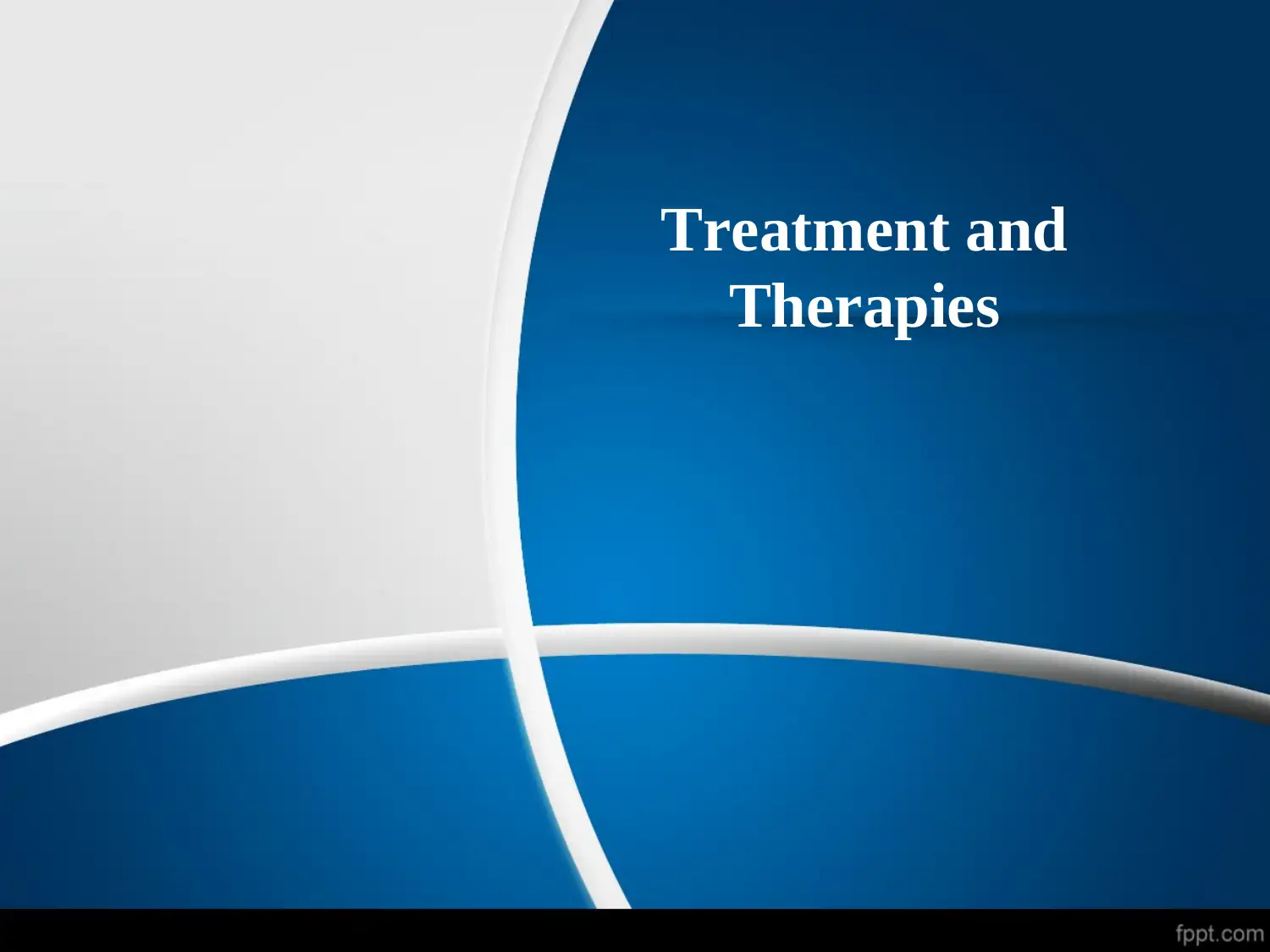
Treatment and
Therapies
Therapies
Secure Best Marks with AI Grader
Need help grading? Try our AI Grader for instant feedback on your assignments.
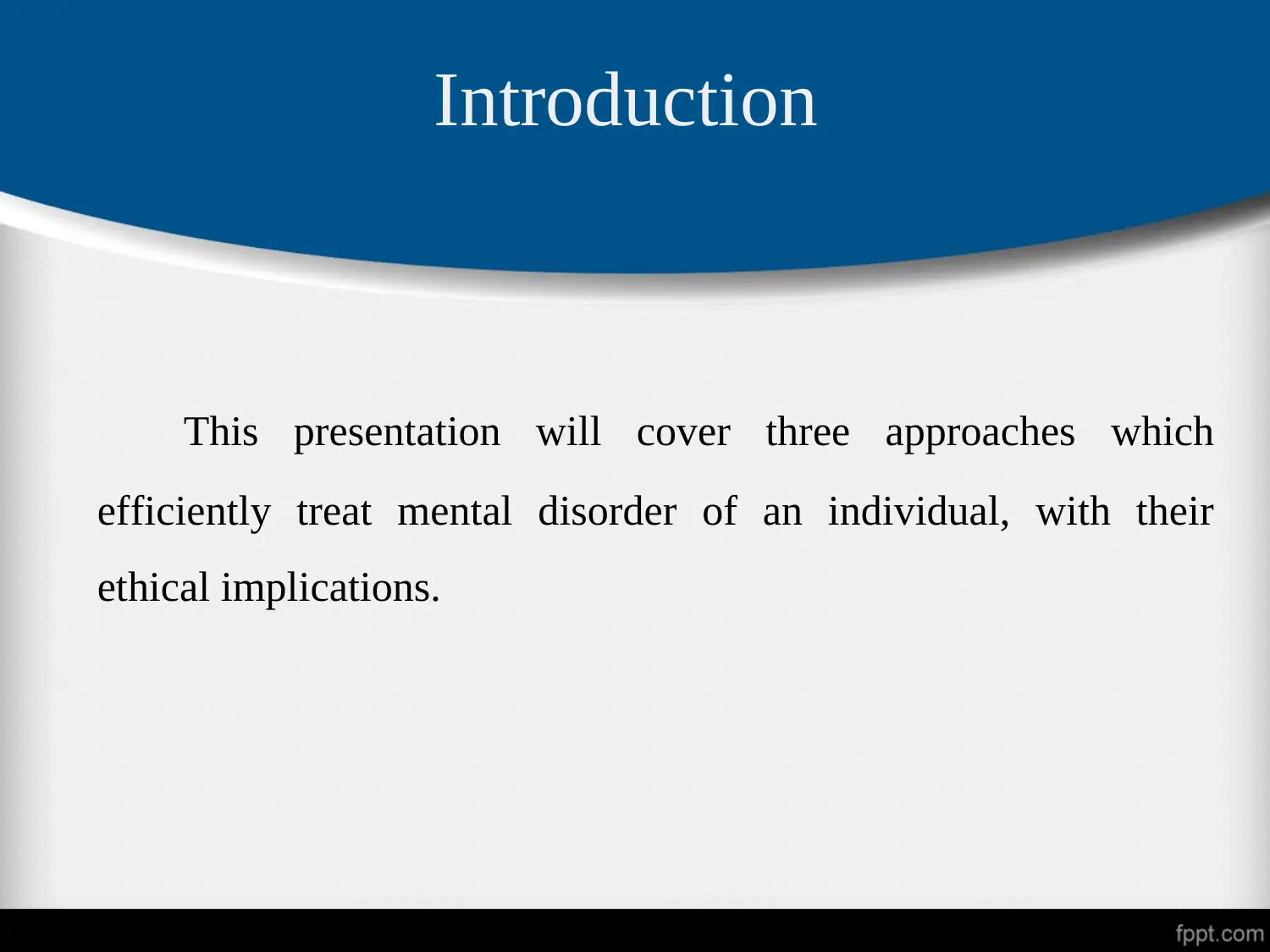
Introduction
This presentation will cover three approaches which
efficiently treat mental disorder of an individual, with their
ethical implications.
This presentation will cover three approaches which
efficiently treat mental disorder of an individual, with their
ethical implications.
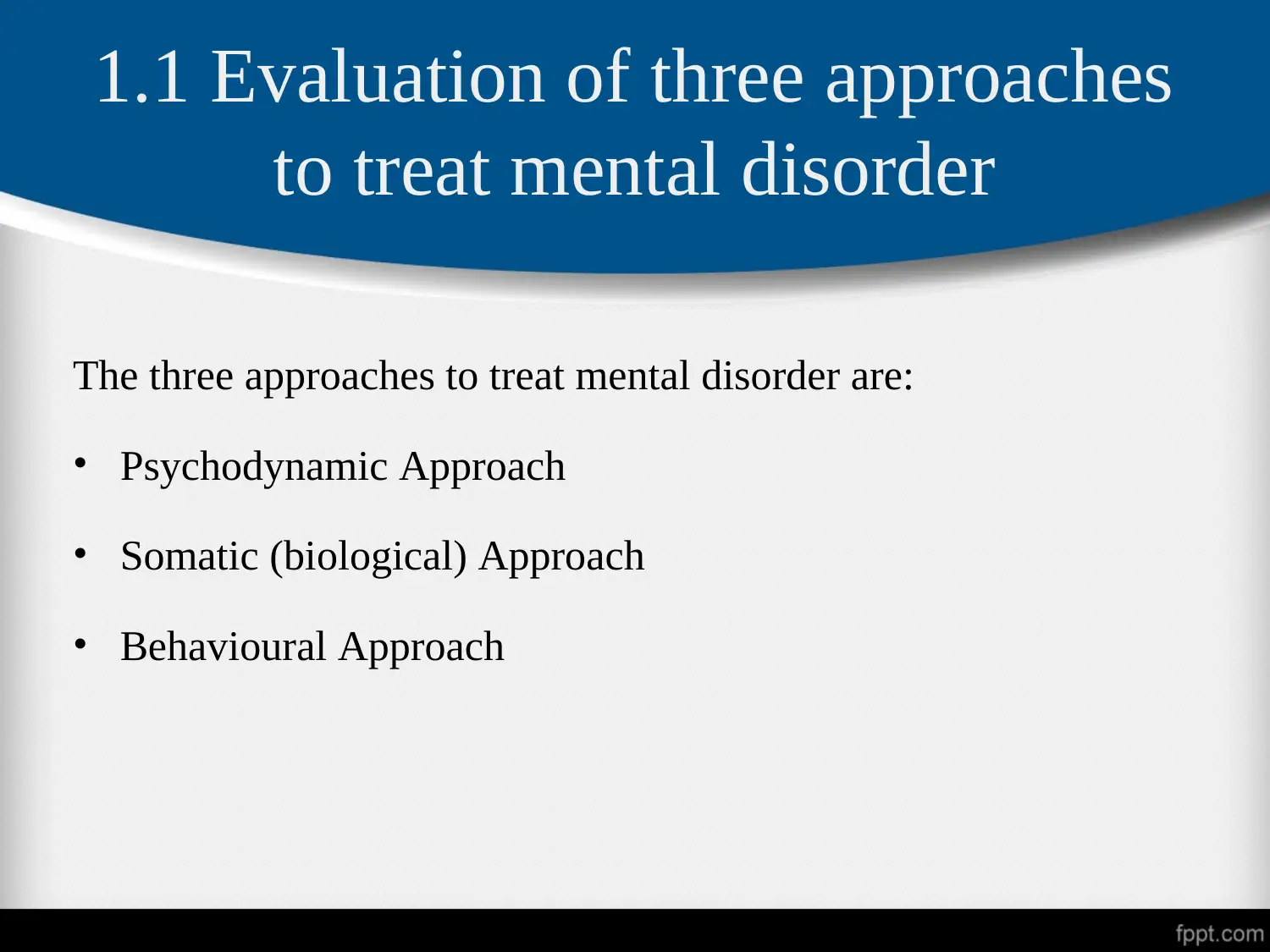
1.1 Evaluation of three approaches
to treat mental disorder
The three approaches to treat mental disorder are:
• Psychodynamic Approach
• Somatic (biological) Approach
• Behavioural Approach
to treat mental disorder
The three approaches to treat mental disorder are:
• Psychodynamic Approach
• Somatic (biological) Approach
• Behavioural Approach
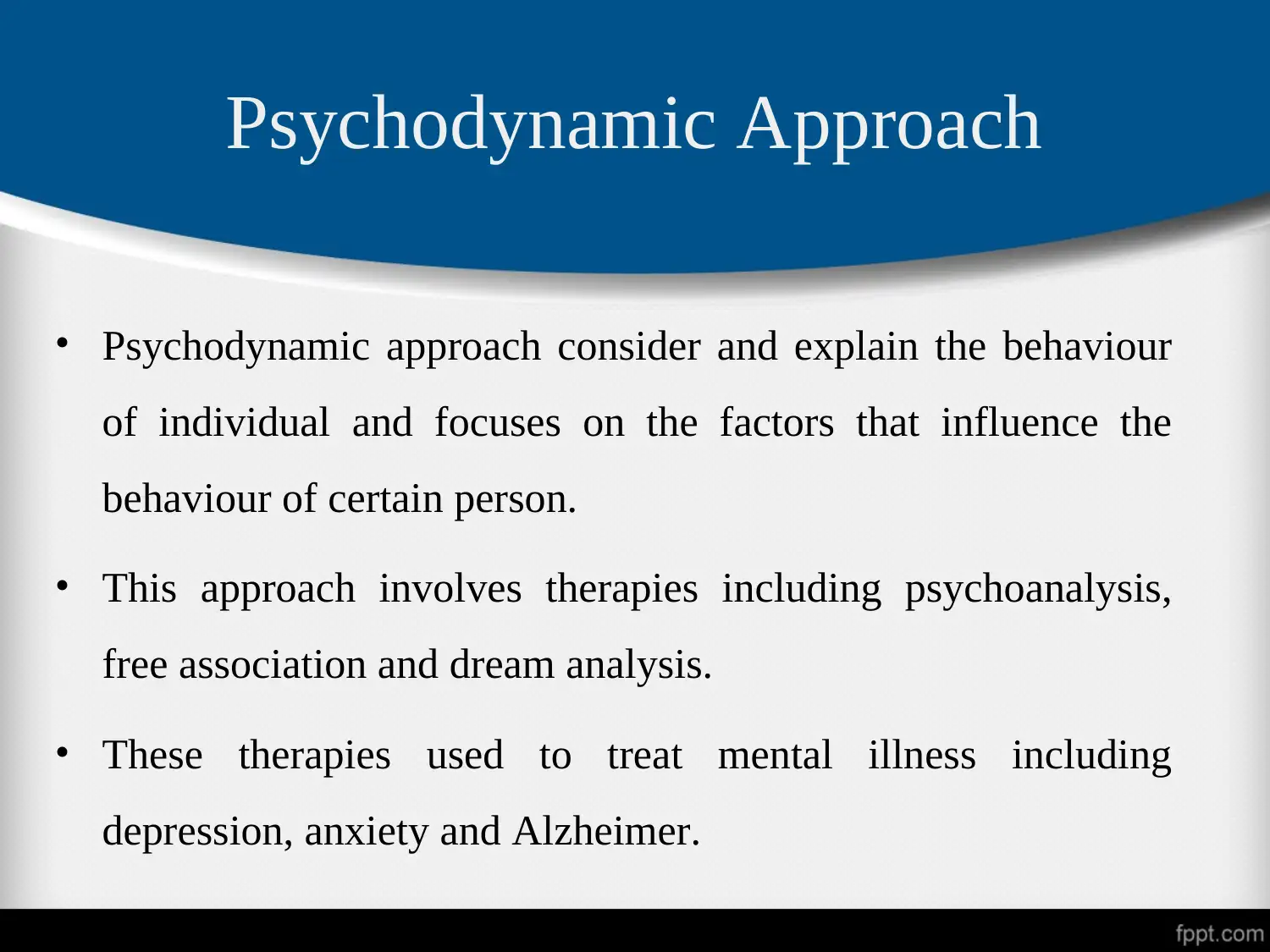
Psychodynamic Approach
• Psychodynamic approach consider and explain the behaviour
of individual and focuses on the factors that influence the
behaviour of certain person.
• This approach involves therapies including psychoanalysis,
free association and dream analysis.
• These therapies used to treat mental illness including
depression, anxiety and Alzheimer.
• Psychodynamic approach consider and explain the behaviour
of individual and focuses on the factors that influence the
behaviour of certain person.
• This approach involves therapies including psychoanalysis,
free association and dream analysis.
• These therapies used to treat mental illness including
depression, anxiety and Alzheimer.
Secure Best Marks with AI Grader
Need help grading? Try our AI Grader for instant feedback on your assignments.
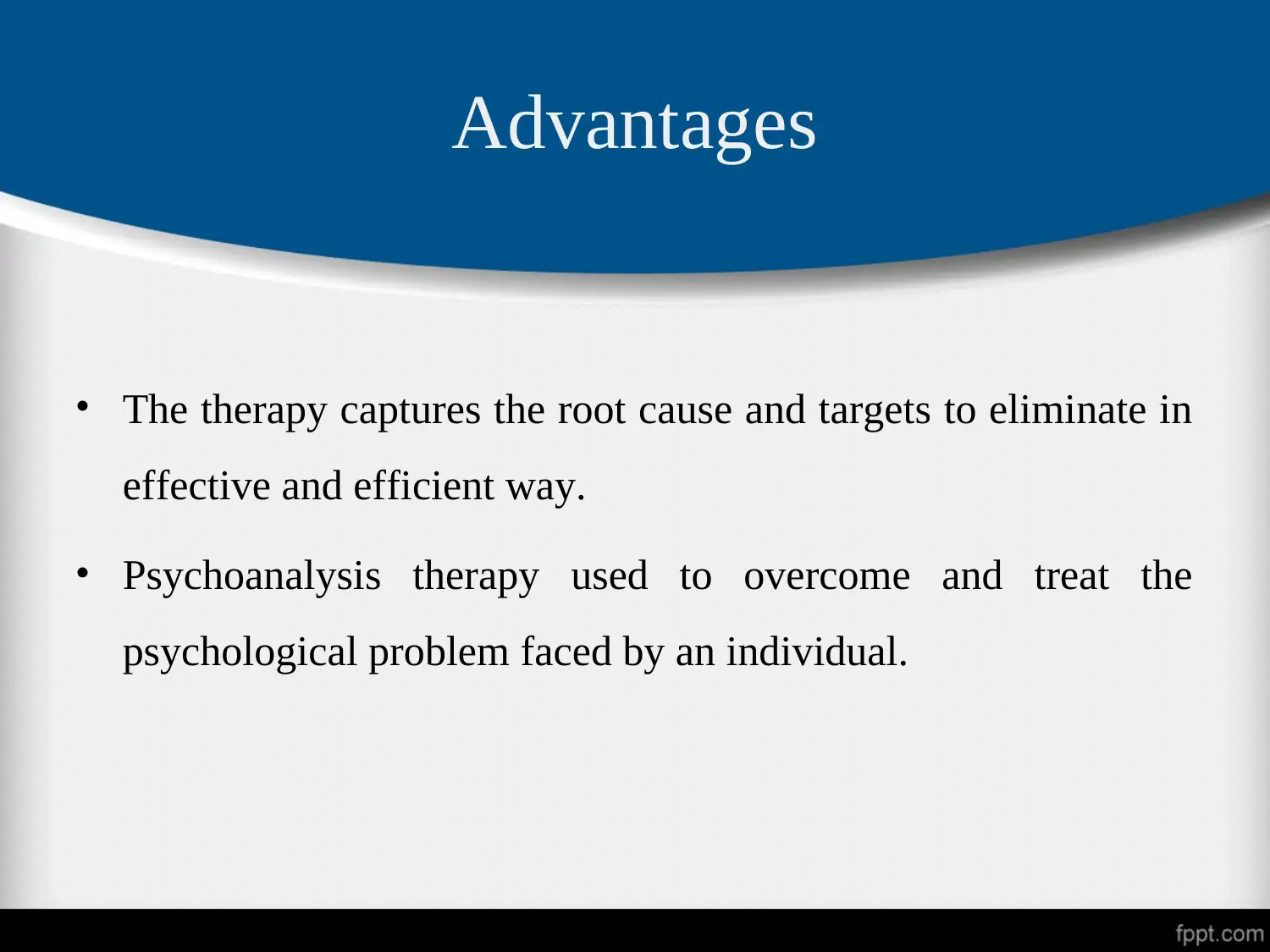
Advantages
• The therapy captures the root cause and targets to eliminate in
effective and efficient way.
• Psychoanalysis therapy used to overcome and treat the
psychological problem faced by an individual.
• The therapy captures the root cause and targets to eliminate in
effective and efficient way.
• Psychoanalysis therapy used to overcome and treat the
psychological problem faced by an individual.
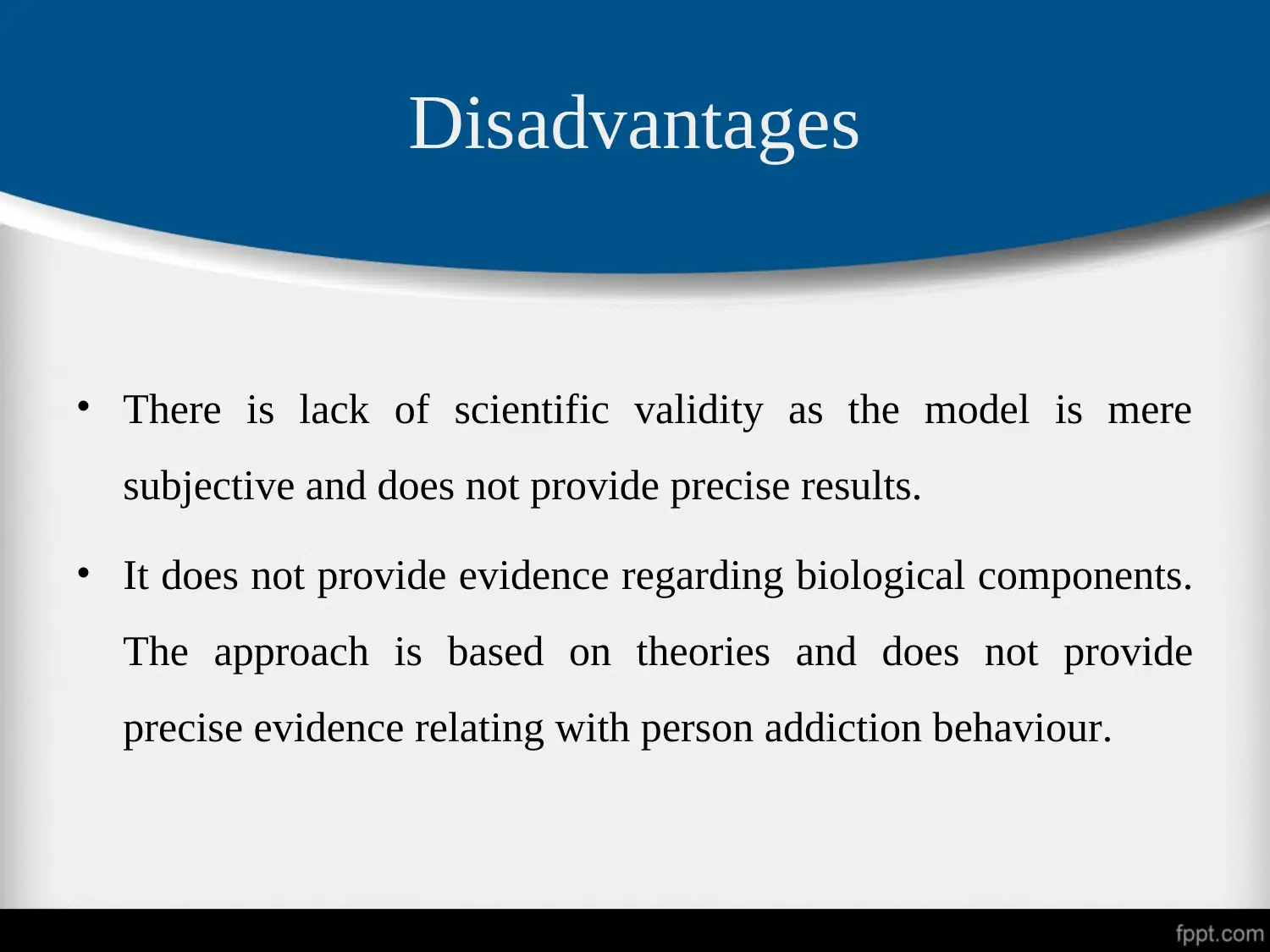
Disadvantages
• There is lack of scientific validity as the model is mere
subjective and does not provide precise results.
• It does not provide evidence regarding biological components.
The approach is based on theories and does not provide
precise evidence relating with person addiction behaviour.
• There is lack of scientific validity as the model is mere
subjective and does not provide precise results.
• It does not provide evidence regarding biological components.
The approach is based on theories and does not provide
precise evidence relating with person addiction behaviour.
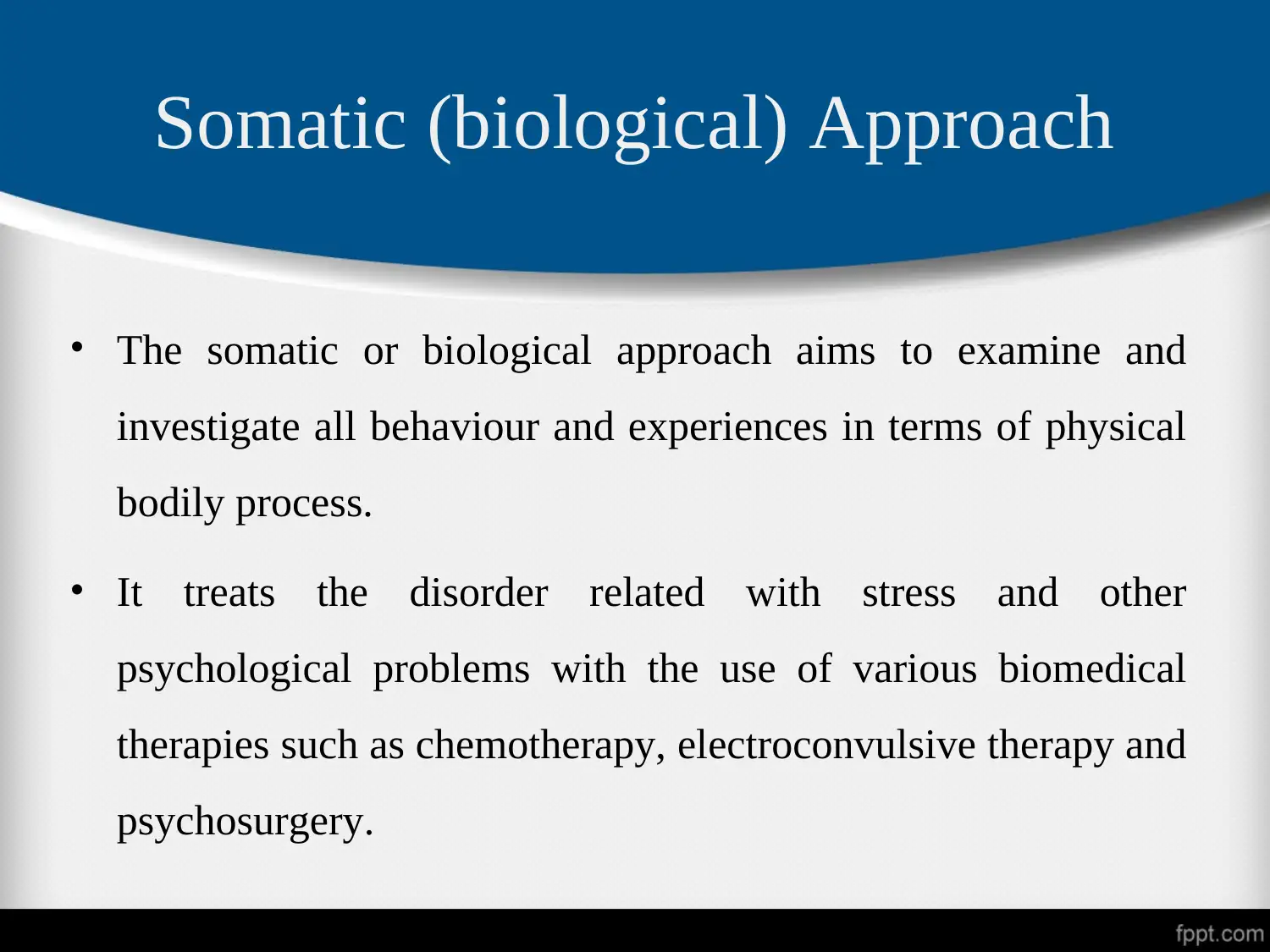
Somatic (biological) Approach
• The somatic or biological approach aims to examine and
investigate all behaviour and experiences in terms of physical
bodily process.
• It treats the disorder related with stress and other
psychological problems with the use of various biomedical
therapies such as chemotherapy, electroconvulsive therapy and
psychosurgery.
• The somatic or biological approach aims to examine and
investigate all behaviour and experiences in terms of physical
bodily process.
• It treats the disorder related with stress and other
psychological problems with the use of various biomedical
therapies such as chemotherapy, electroconvulsive therapy and
psychosurgery.
Paraphrase This Document
Need a fresh take? Get an instant paraphrase of this document with our AI Paraphraser
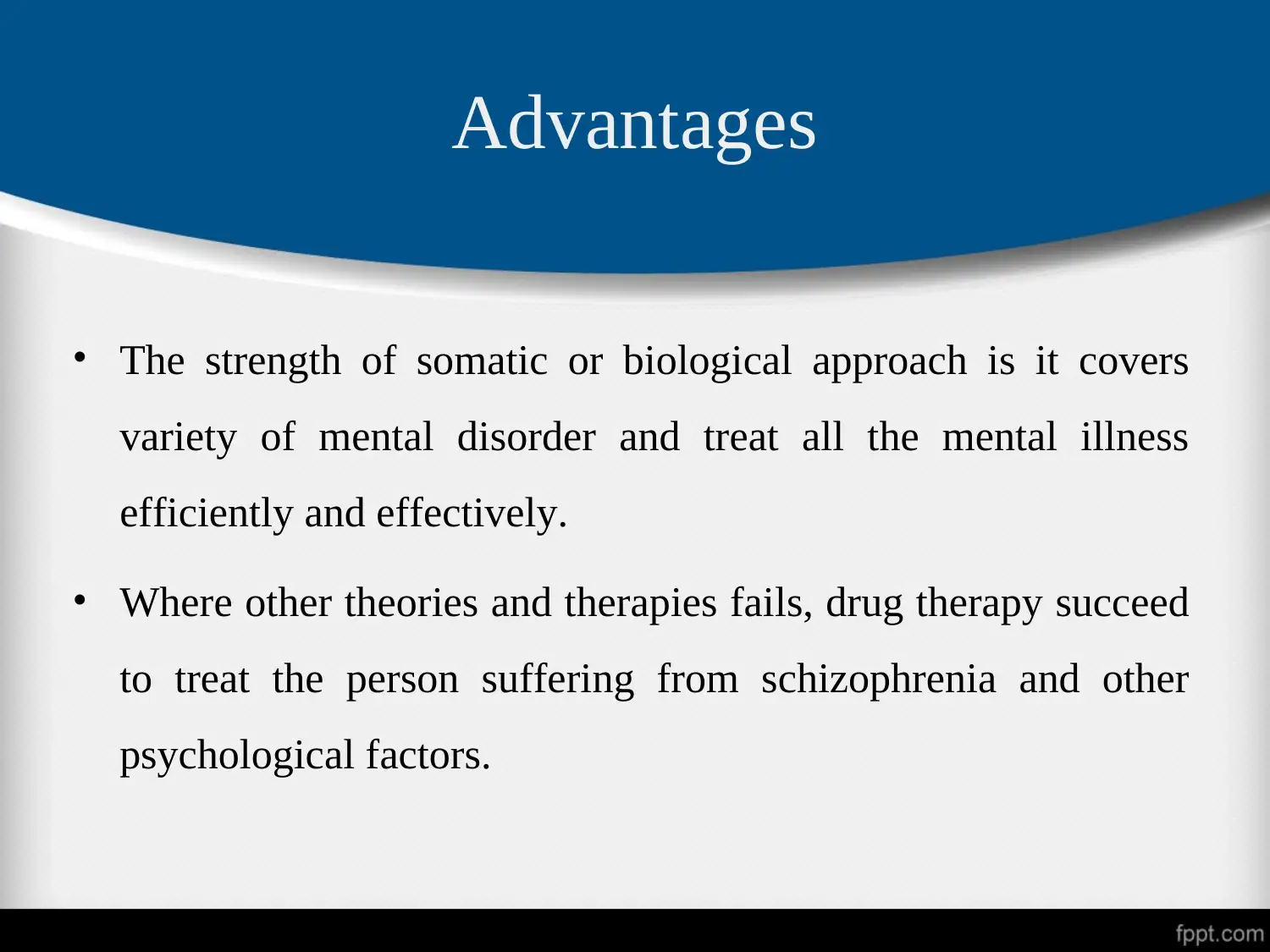
Advantages
• The strength of somatic or biological approach is it covers
variety of mental disorder and treat all the mental illness
efficiently and effectively.
• Where other theories and therapies fails, drug therapy succeed
to treat the person suffering from schizophrenia and other
psychological factors.
• The strength of somatic or biological approach is it covers
variety of mental disorder and treat all the mental illness
efficiently and effectively.
• Where other theories and therapies fails, drug therapy succeed
to treat the person suffering from schizophrenia and other
psychological factors.
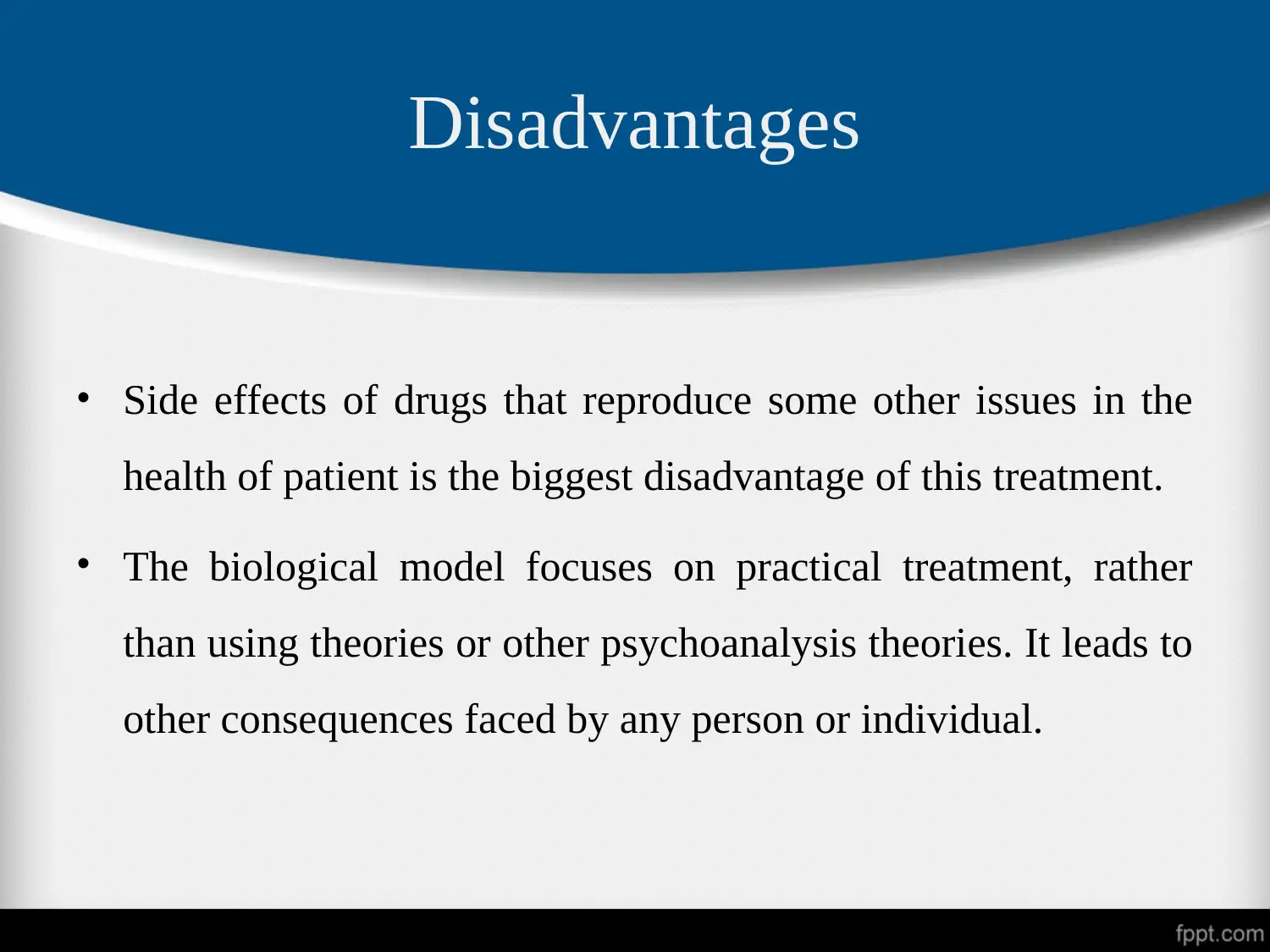
Disadvantages
• Side effects of drugs that reproduce some other issues in the
health of patient is the biggest disadvantage of this treatment.
• The biological model focuses on practical treatment, rather
than using theories or other psychoanalysis theories. It leads to
other consequences faced by any person or individual.
• Side effects of drugs that reproduce some other issues in the
health of patient is the biggest disadvantage of this treatment.
• The biological model focuses on practical treatment, rather
than using theories or other psychoanalysis theories. It leads to
other consequences faced by any person or individual.
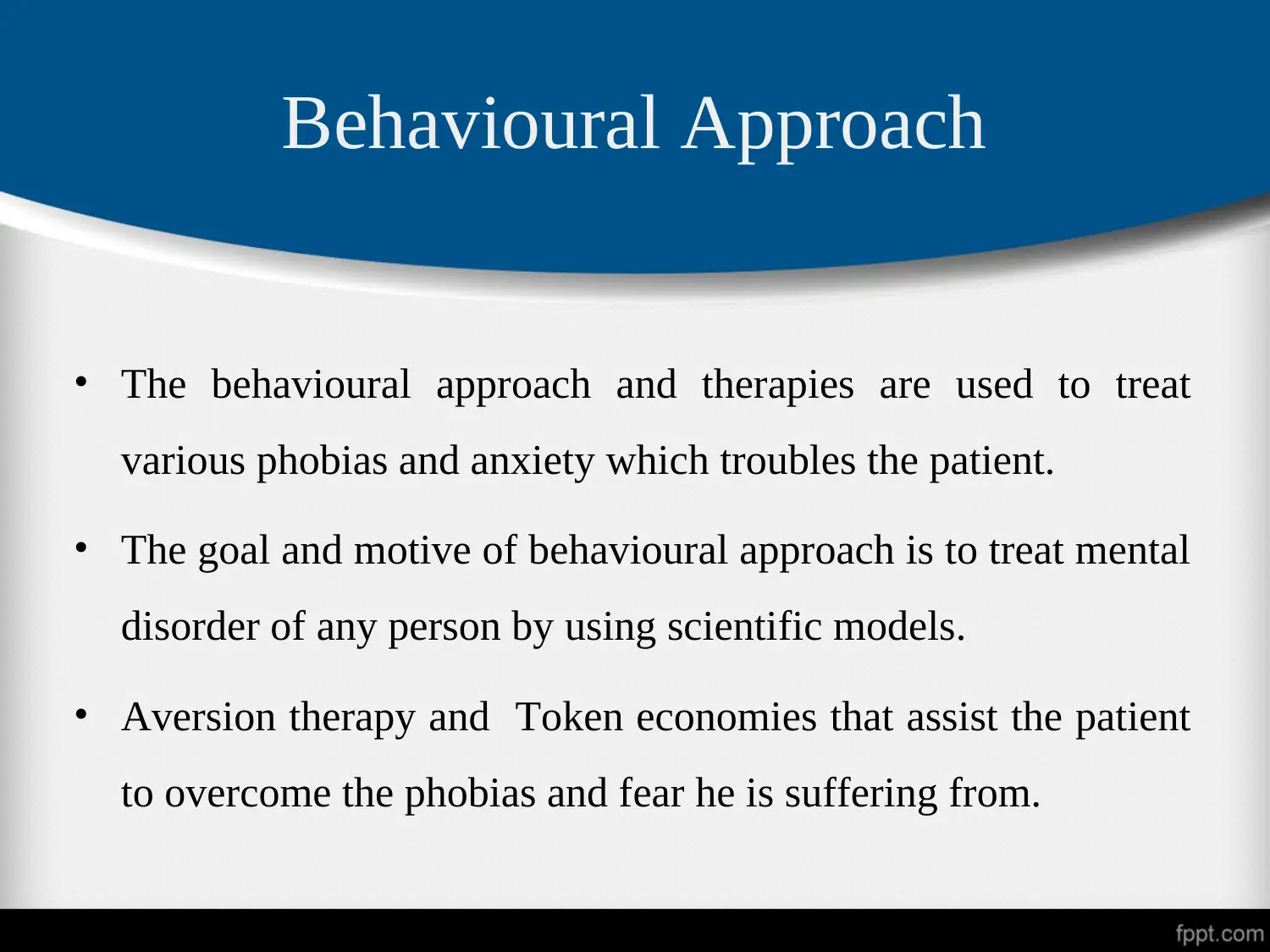
Behavioural Approach
• The behavioural approach and therapies are used to treat
various phobias and anxiety which troubles the patient.
• The goal and motive of behavioural approach is to treat mental
disorder of any person by using scientific models.
• Aversion therapy and Token economies that assist the patient
to overcome the phobias and fear he is suffering from.
• The behavioural approach and therapies are used to treat
various phobias and anxiety which troubles the patient.
• The goal and motive of behavioural approach is to treat mental
disorder of any person by using scientific models.
• Aversion therapy and Token economies that assist the patient
to overcome the phobias and fear he is suffering from.
Secure Best Marks with AI Grader
Need help grading? Try our AI Grader for instant feedback on your assignments.
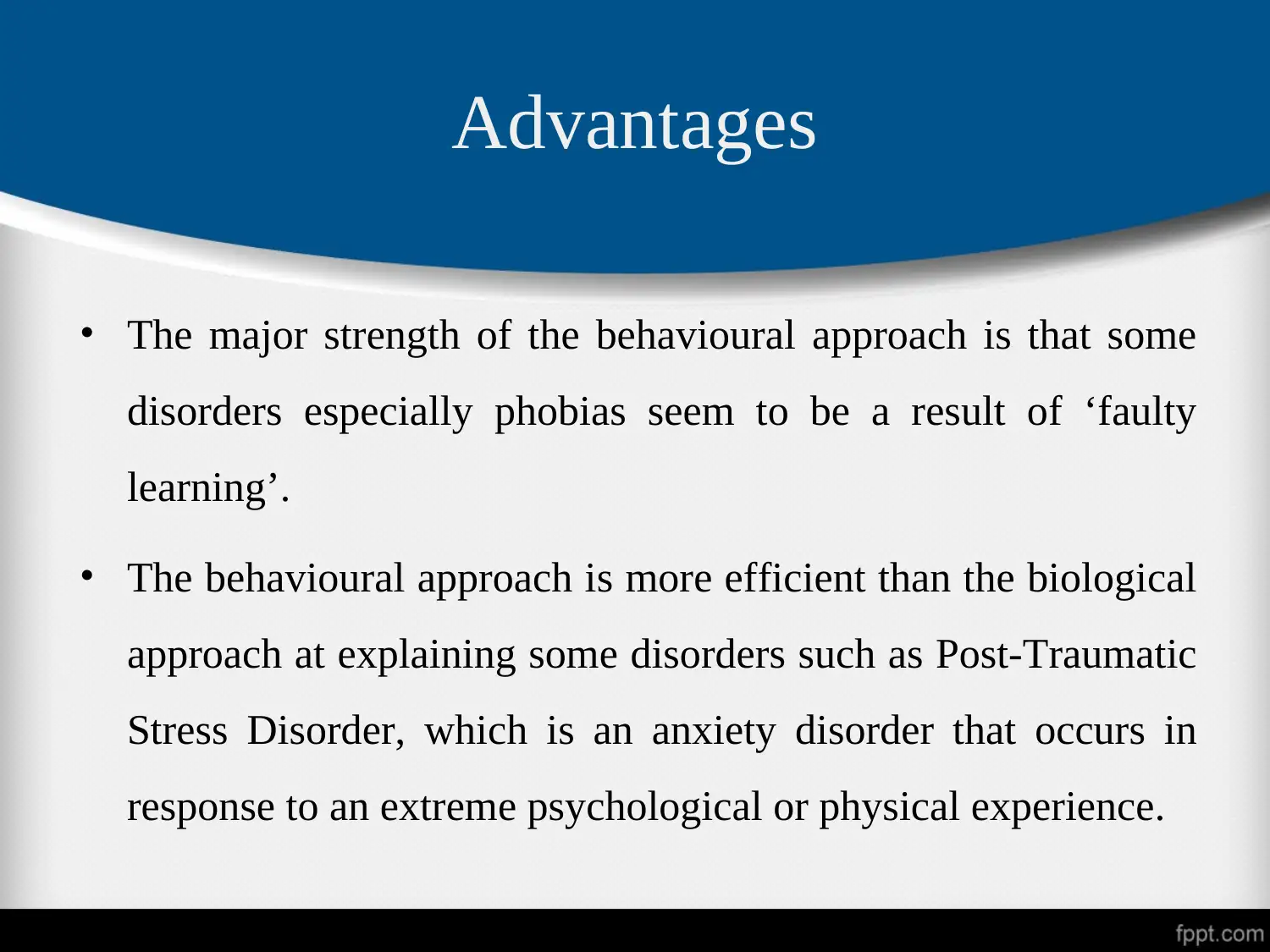
Advantages
• The major strength of the behavioural approach is that some
disorders especially phobias seem to be a result of ‘faulty
learning’.
• The behavioural approach is more efficient than the biological
approach at explaining some disorders such as Post-Traumatic
Stress Disorder, which is an anxiety disorder that occurs in
response to an extreme psychological or physical experience.
• The major strength of the behavioural approach is that some
disorders especially phobias seem to be a result of ‘faulty
learning’.
• The behavioural approach is more efficient than the biological
approach at explaining some disorders such as Post-Traumatic
Stress Disorder, which is an anxiety disorder that occurs in
response to an extreme psychological or physical experience.
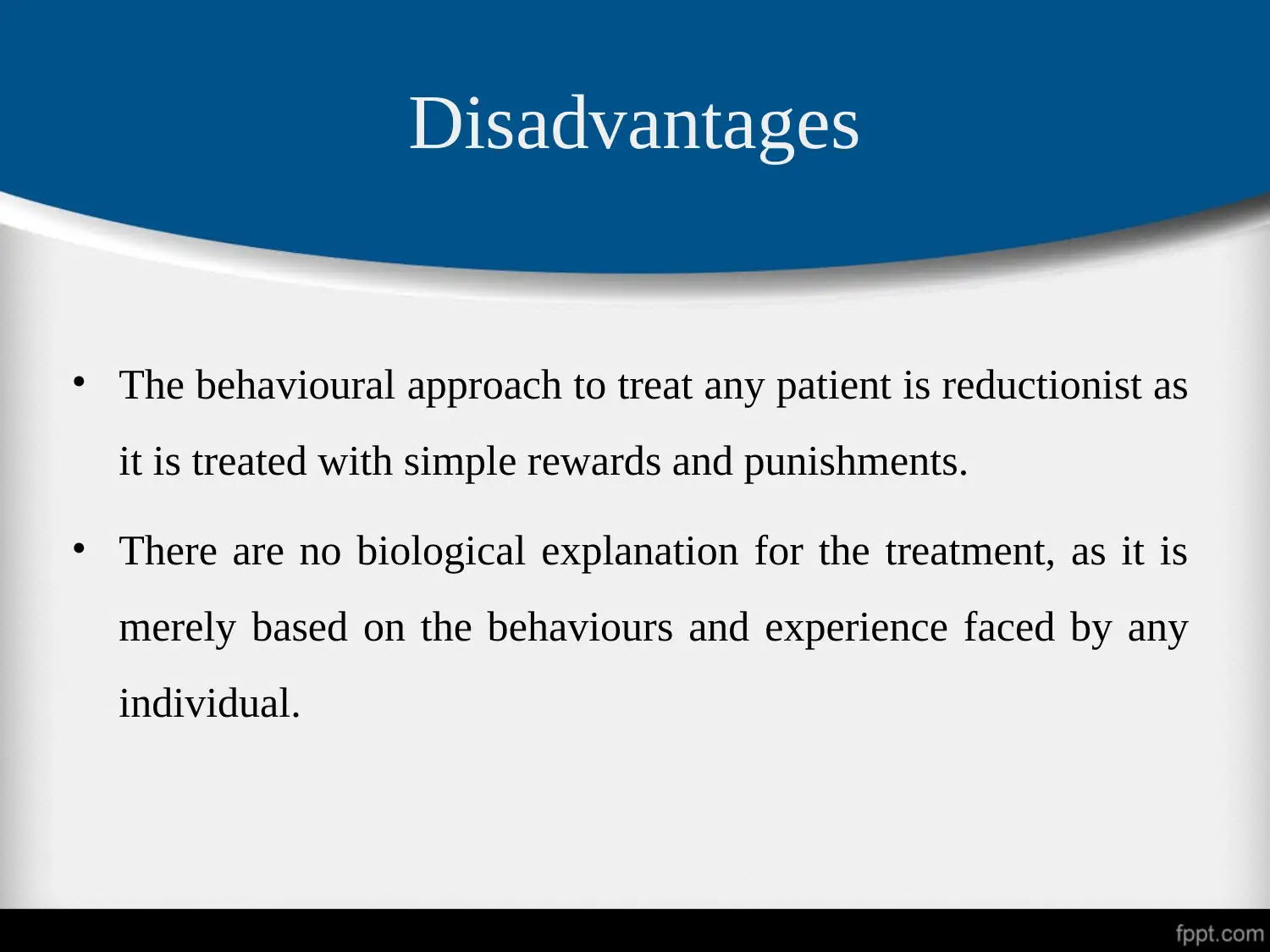
Disadvantages
• The behavioural approach to treat any patient is reductionist as
it is treated with simple rewards and punishments.
• There are no biological explanation for the treatment, as it is
merely based on the behaviours and experience faced by any
individual.
• The behavioural approach to treat any patient is reductionist as
it is treated with simple rewards and punishments.
• There are no biological explanation for the treatment, as it is
merely based on the behaviours and experience faced by any
individual.
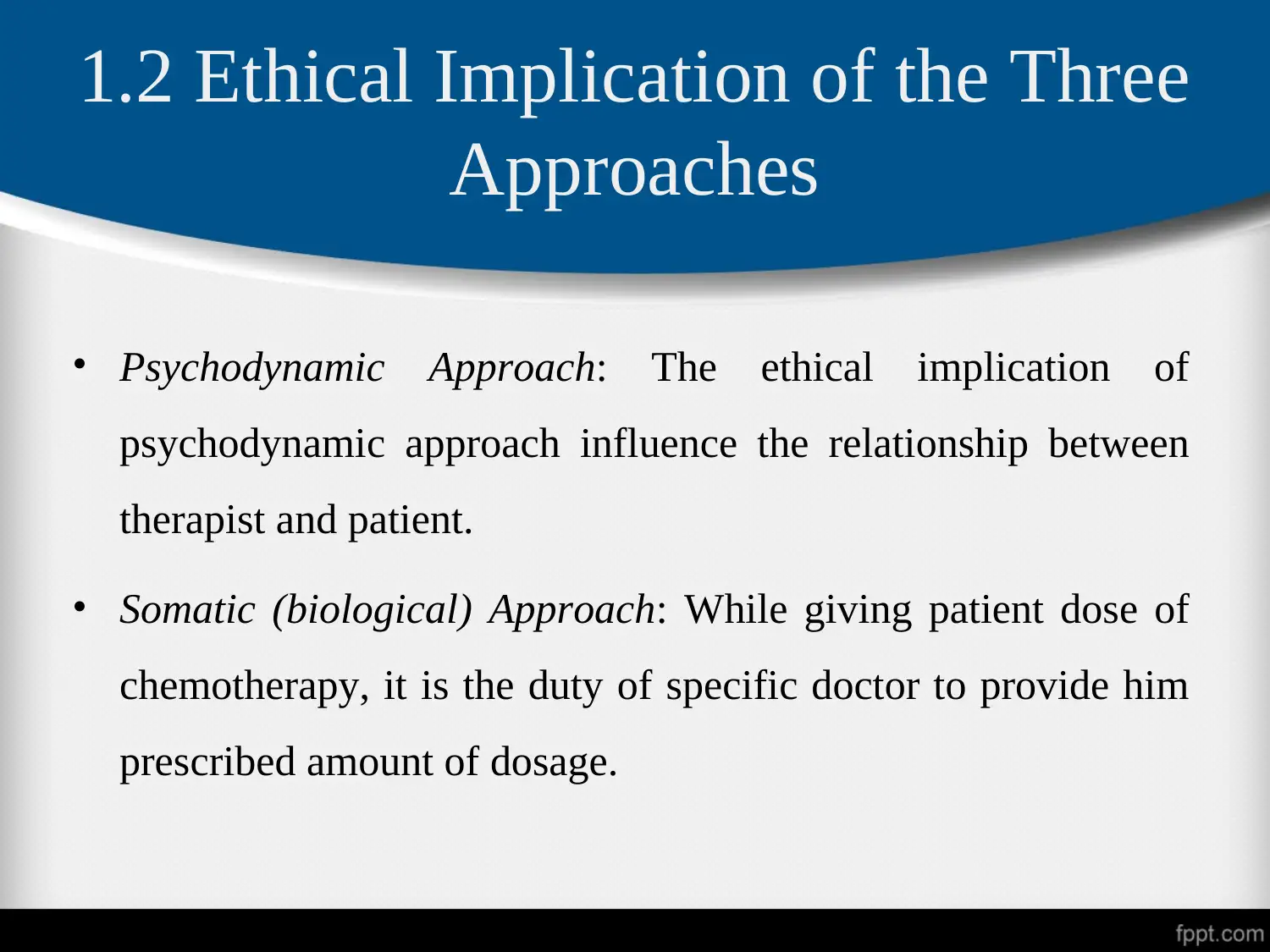
1.2 Ethical Implication of the Three
Approaches
• Psychodynamic Approach: The ethical implication of
psychodynamic approach influence the relationship between
therapist and patient.
• Somatic (biological) Approach: While giving patient dose of
chemotherapy, it is the duty of specific doctor to provide him
prescribed amount of dosage.
Approaches
• Psychodynamic Approach: The ethical implication of
psychodynamic approach influence the relationship between
therapist and patient.
• Somatic (biological) Approach: While giving patient dose of
chemotherapy, it is the duty of specific doctor to provide him
prescribed amount of dosage.
Paraphrase This Document
Need a fresh take? Get an instant paraphrase of this document with our AI Paraphraser
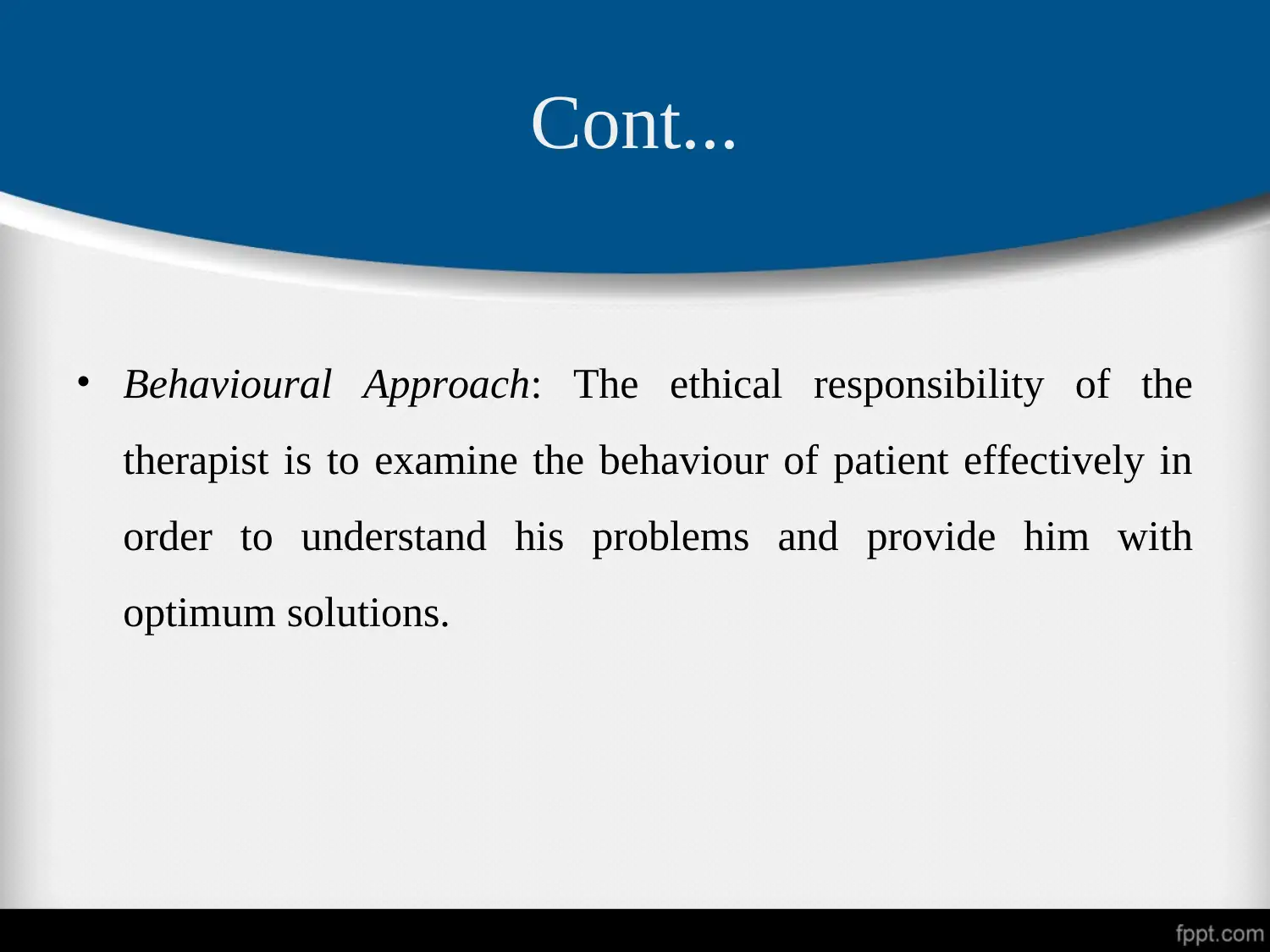
Cont...
• Behavioural Approach: The ethical responsibility of the
therapist is to examine the behaviour of patient effectively in
order to understand his problems and provide him with
optimum solutions.
• Behavioural Approach: The ethical responsibility of the
therapist is to examine the behaviour of patient effectively in
order to understand his problems and provide him with
optimum solutions.
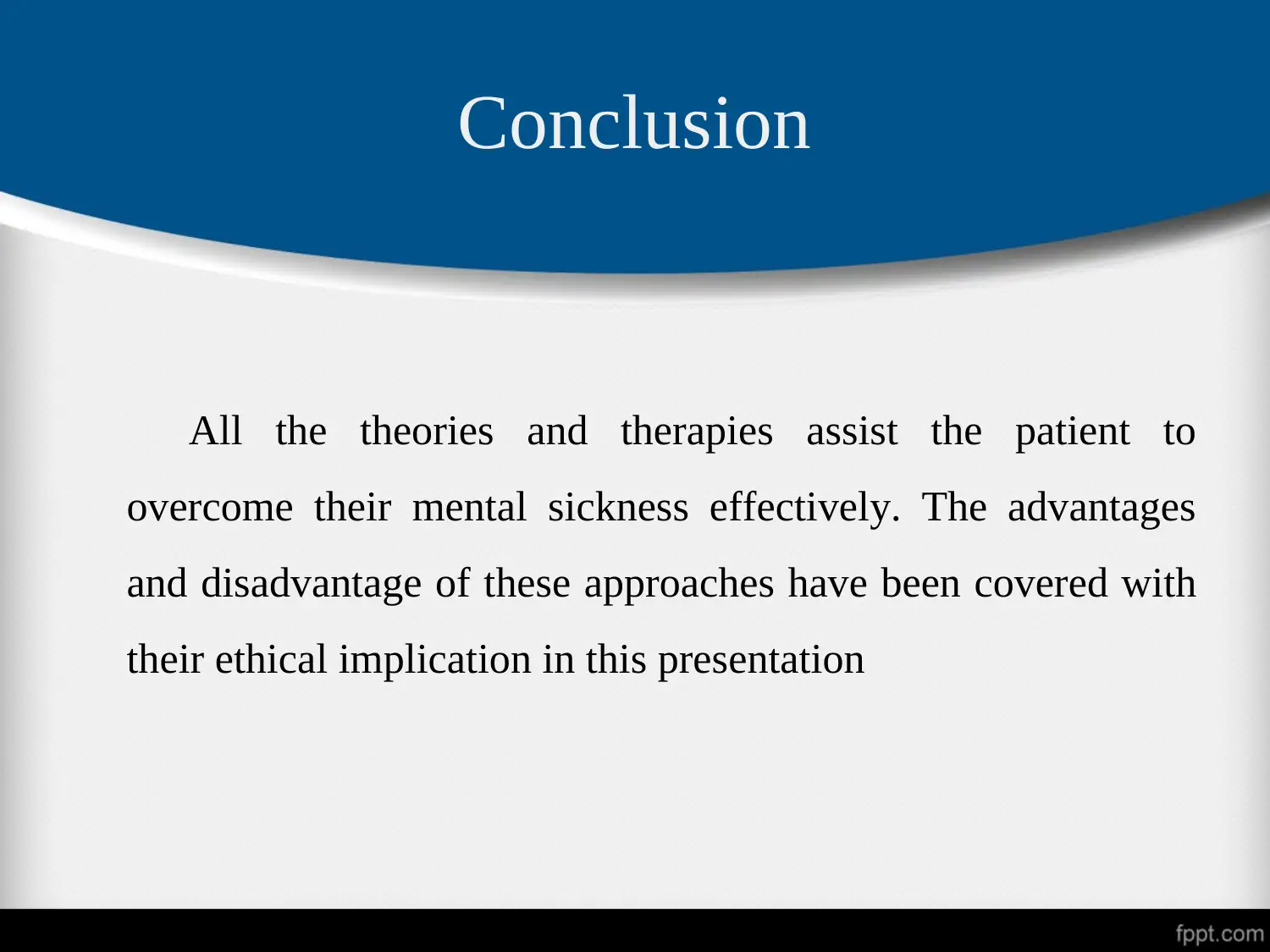
Conclusion
All the theories and therapies assist the patient to
overcome their mental sickness effectively. The advantages
and disadvantage of these approaches have been covered with
their ethical implication in this presentation
All the theories and therapies assist the patient to
overcome their mental sickness effectively. The advantages
and disadvantage of these approaches have been covered with
their ethical implication in this presentation
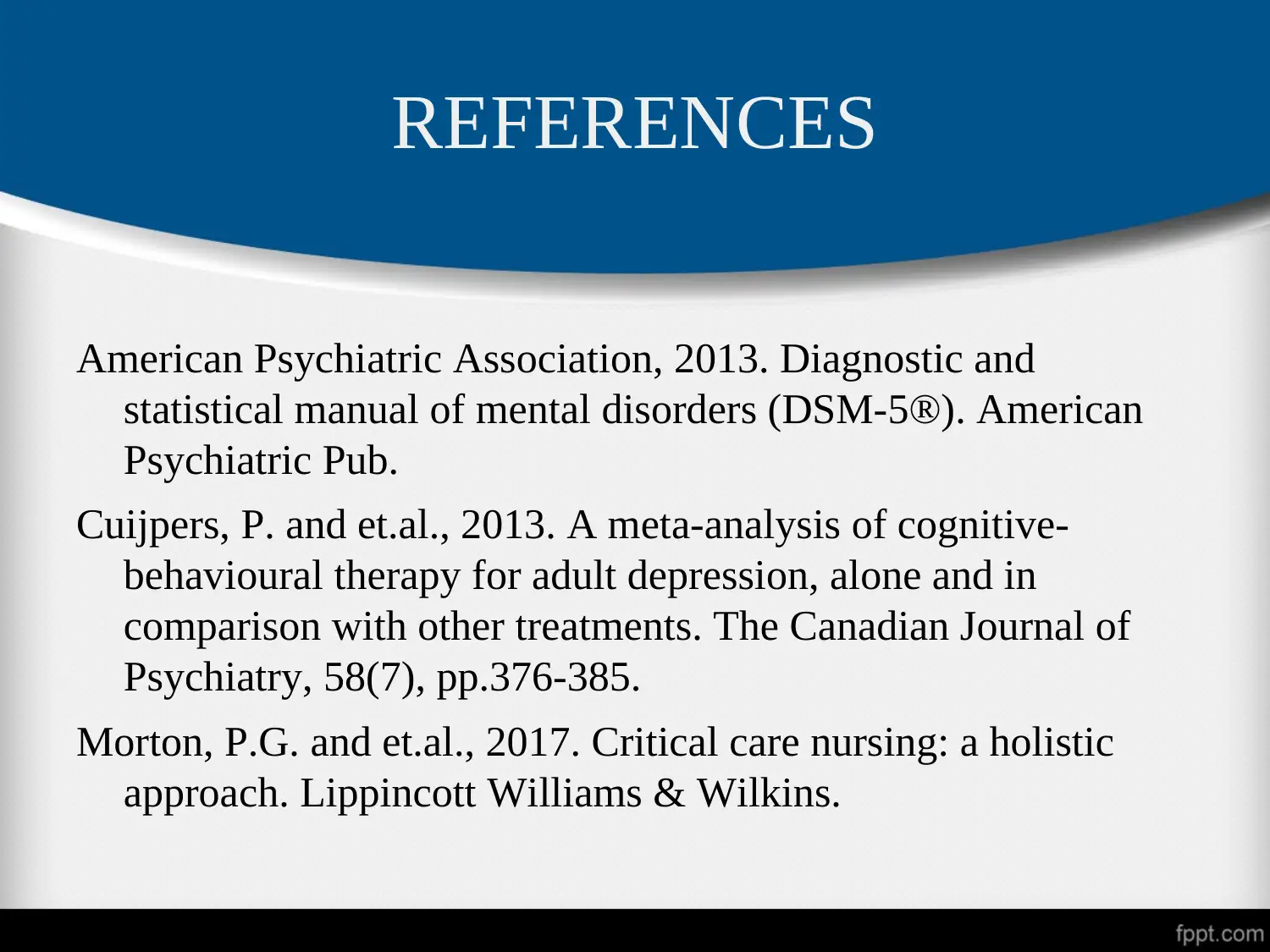
REFERENCES
American Psychiatric Association, 2013. Diagnostic and
statistical manual of mental disorders (DSM-5®). American
Psychiatric Pub.
Cuijpers, P. and et.al., 2013. A meta-analysis of cognitive-
behavioural therapy for adult depression, alone and in
comparison with other treatments. The Canadian Journal of
Psychiatry, 58(7), pp.376-385.
Morton, P.G. and et.al., 2017. Critical care nursing: a holistic
approach. Lippincott Williams & Wilkins.
American Psychiatric Association, 2013. Diagnostic and
statistical manual of mental disorders (DSM-5®). American
Psychiatric Pub.
Cuijpers, P. and et.al., 2013. A meta-analysis of cognitive-
behavioural therapy for adult depression, alone and in
comparison with other treatments. The Canadian Journal of
Psychiatry, 58(7), pp.376-385.
Morton, P.G. and et.al., 2017. Critical care nursing: a holistic
approach. Lippincott Williams & Wilkins.
Secure Best Marks with AI Grader
Need help grading? Try our AI Grader for instant feedback on your assignments.
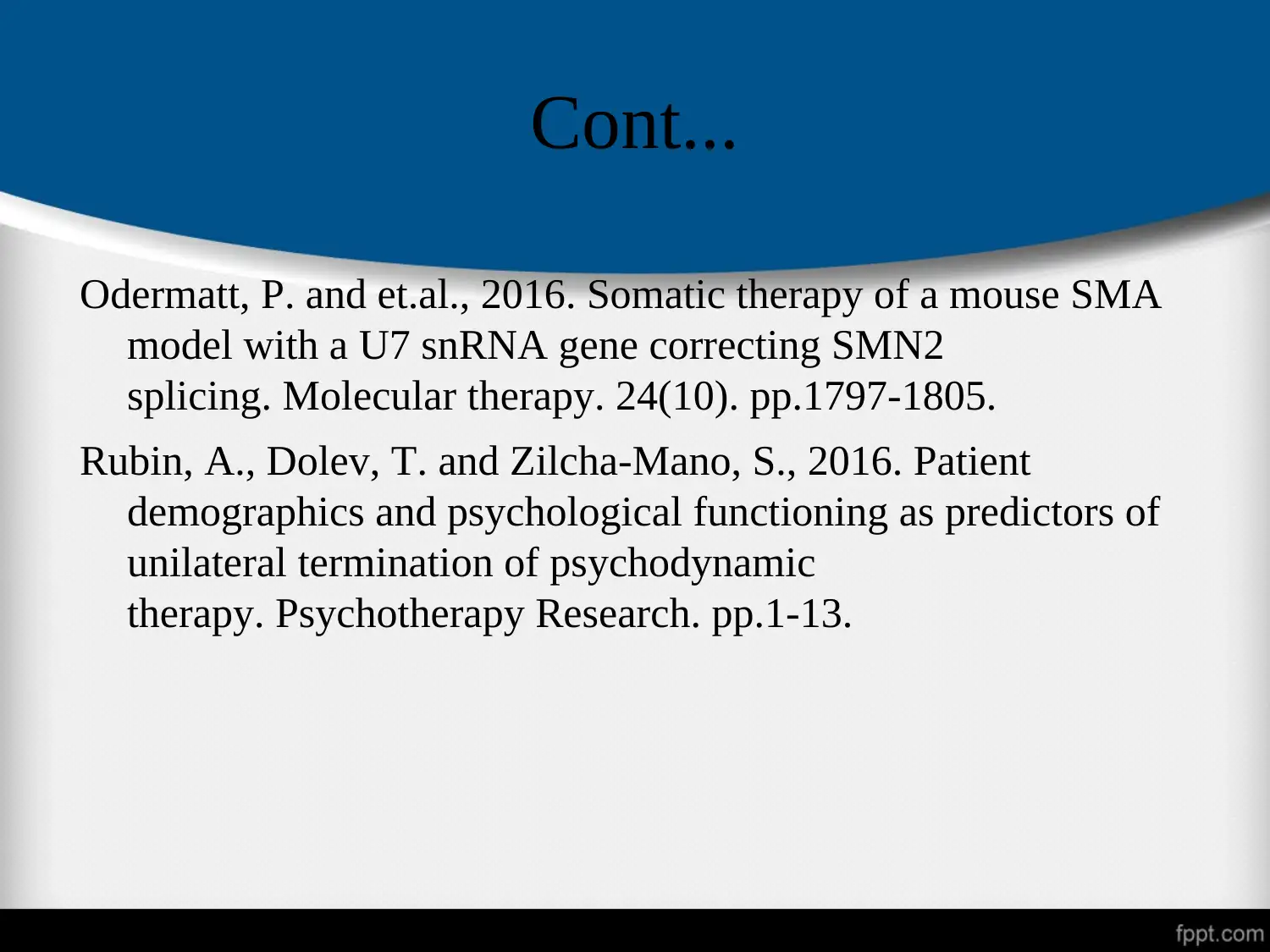
Cont...
Odermatt, P. and et.al., 2016. Somatic therapy of a mouse SMA
model with a U7 snRNA gene correcting SMN2
splicing. Molecular therapy. 24(10). pp.1797-1805.
Rubin, A., Dolev, T. and Zilcha-Mano, S., 2016. Patient
demographics and psychological functioning as predictors of
unilateral termination of psychodynamic
therapy. Psychotherapy Research. pp.1-13.
Odermatt, P. and et.al., 2016. Somatic therapy of a mouse SMA
model with a U7 snRNA gene correcting SMN2
splicing. Molecular therapy. 24(10). pp.1797-1805.
Rubin, A., Dolev, T. and Zilcha-Mano, S., 2016. Patient
demographics and psychological functioning as predictors of
unilateral termination of psychodynamic
therapy. Psychotherapy Research. pp.1-13.

Thank You
1 out of 18
Related Documents
Your All-in-One AI-Powered Toolkit for Academic Success.
+13062052269
info@desklib.com
Available 24*7 on WhatsApp / Email
![[object Object]](/_next/static/media/star-bottom.7253800d.svg)
Unlock your academic potential
© 2024 | Zucol Services PVT LTD | All rights reserved.




